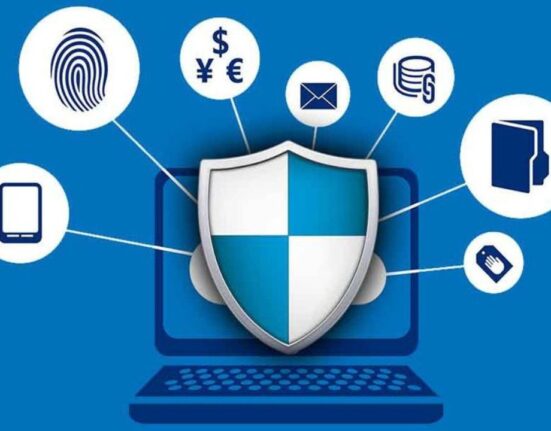Best Cybersecurity Practices Against Hackers for Startups, Implement strong password policies, enable two-factor authentication, regularly update software, conduct security audits, encrypt sensitive data, educate employees on security awareness, limit access to essential resources, utilize firewalls and intrusion detection systems, employ secure coding practices, establish incident response protocols, and monitor for suspicious activities.
Protecting Your Startup: The Ultimate Guide to Cybersecurity
Focusing on cybersecurity might only sometimes be at the top of your priority list. However, overlooking this crucial aspect of your business could leave you vulnerable to cyber threats and attacks. In this comprehensive guide, we’ll explore the best cybersecurity practices that startups can implement to safeguard their sensitive information and maintain the trust of their customers.
The Threat Landscape
Before discussing specific cybersecurity measures, it’s essential to understand the various threats that startups face in today’s digital landscape. Hackers constantly evolve their tactics to exploit vulnerabilities in systems and networks, making it imperative for startups to stay one step ahead. Gaining insight into the ever-evolving realm of cyber threats and vulnerabilities is essential for any organization to effectively fortify its defenses against potential attacks.
Implementing Strong Password Policies
Implementing strong password policies is one of the simplest yet most effective cybersecurity practices. Encourage your team members to use complex passwords that include a combination of letters, numbers, and special characters. Additionally, consider implementing multi-factor authentication (MFA) to add an extra layer of security to your accounts.
Ensuring robust password policies involves establishing guidelines that promote the use of complex combinations, including letters, numbers, and symbols, to enhance security and effectively thwart unauthorized access attempts.
Regularly Updating Software and Systems
Outdated software and systems are prime targets for hackers looking to exploit known vulnerabilities. Make it a priority to regularly update all software and systems used within your startup, including operating systems, antivirus programs, and applications. This simple practice can significantly reduce the risk of a successful cyber attack.
Ensuring that software and systems are consistently updated with the latest patches and security fixes is crucial for maintaining the integrity and resilience of your digital infrastructure against evolving cyber threats.
Educating Your Team
Your team members are often the first line of defense against cyber threats. Provide comprehensive cybersecurity training to all employees, covering topics such as identifying phishing attempts, recognizing suspicious emails, and practicing safe browsing habits. Additionally, establish clear protocols for reporting potential security incidents to ensure prompt action can be taken.
Training your team members on cybersecurity is crucial for enhancing awareness and fostering a proactive defense against potential threats, including phishing attacks and data breaches.
Securing Your Network
Securing your startup’s network is crucial for protecting sensitive data from unauthorized access. Implement firewalls, encryption protocols, and intrusion detection systems to monitor and control network traffic. Consider segmenting your network to limit access to sensitive information only to those who need it for their job roles.
Ensuring the security of your network involves implementing robust measures to safeguard sensitive data and prevent unauthorized access, such as firewalls, encryption protocols, and intrusion detection systems.
Backing Up Data Regularly
Data loss can have devastating consequences for any business, especially startups with limited resources. Implement a regular backup strategy to ensure critical data is securely backed up and accessible during a cyber attack or system failure. Store backups in a secure offsite location to prevent loss due to physical disasters.
Ensuring regular data backups is essential for safeguarding critical information against loss due to cyber attacks or system failures, thereby maintaining business continuity and minimizing potential disruptions.
Conducting Regular Security Audits
Regular security audits can help identify and address potential vulnerabilities before malicious actors exploit them. Work with cybersecurity professionals to conduct thorough audits of your startup’s systems, networks, and processes. Address any findings promptly to maintain a strong security posture.
Security audits involve systematically reviewing and assessing a company’s systems, networks, and processes to identify vulnerabilities and ensure cybersecurity standards and best practices compliance.
Partnering with Cybersecurity Experts
Navigating the complex world of cybersecurity can be daunting, especially for startups with limited resources and expertise. Consider partnering with cybersecurity experts or Managed Security Service Providers (MSSPs) to augment your internal capabilities and ensure comprehensive protection against cyber threats.
Engaging with cybersecurity professionals enhances startup defenses by leveraging expert knowledge and resources, bolstering protection against evolving threats, and ensuring comprehensive security measures are in place.
Building a Culture of Security
Finally, instill a culture of security within your startup by emphasizing the importance of cybersecurity across all levels of the organization. Encourage open communication about security concerns and empower employees to take an active role in protecting sensitive information. By prioritizing cybersecurity, you can mitigate risks and build trust with your customers and stakeholders. Cultivating a workplace culture that prioritizes cybersecurity awareness and proactive measures to protect sensitive information and assets.
The Best Cybersecurity Practices Against Hackers for Startups
Startups are particularly vulnerable. As a startup, safeguarding your digital assets and sensitive information is paramount. Here are some proactive cybersecurity practices to fortify your defenses against hackers.
-
Conduct Regular Security Audits
Regular security audits are the cornerstone of a robust cybersecurity strategy. By routinely assessing your systems, networks, and processes, you can identify vulnerabilities before malicious actors exploit them. Utilize reputable cybersecurity tools and professionals to conduct comprehensive audits.
-
Implement Multi-Factor Authentication (MFA)
Multi-factor authentication adds an extra layer of protection by requiring users to provide multiple forms of verification before accessing accounts or systems. Incorporating MFA into your authentication processes significantly reduces the risk of unauthorized access, even if login credentials are compromised.
-
Educate Employees on Cybersecurity Awareness
Human error remains one of the most significant contributors to cybersecurity breaches. Educate your employees on the importance of cybersecurity awareness and provide training on recognizing phishing attempts, social engineering tactics, and other common threats. A well-informed workforce is your first line of defense against cyber attacks.
-
Regularly Update Software and Systems
Outdated software and systems are easy targets for hackers, as they often contain known vulnerabilities that can be exploited. Ensure all software, operating systems, and applications are promptly updated with the latest security patches and fixes. Automated patch management systems can streamline this process and minimize the risk of oversight.
-
Secure Your Wi-Fi Network
Unsecured Wi-Fi networks pose a significant risk to startup cybersecurity. Implement strong encryption protocols such as WPA2 or WPA3 to protect your Wi-Fi network from unauthorized access. Additionally, consider segmenting your network to restrict access to sensitive data and limit exposure to potential threats.
-
Backup Data Regularly
Data loss can have devastating consequences for startups. Implement a regular backup strategy to protect critical data during a security breach or system failure. Utilize both onsite and offsite backups for redundancy, and regularly test your backup systems to verify their effectiveness.
-
Develop an Incident Response Plan
Despite your best efforts, security incidents may still occur. Developing a comprehensive incident response plan enables your startup to respond swiftly and effectively to cybersecurity breaches. Define roles and responsibilities, establish communication protocols, and conduct regular drills to ensure readiness in the event of an emergency.
Some Points of Best Cybersecurity Practices Against Hackers for Startups

Cybersecurity practices against hackers for startups: In the ever-evolving digital landscape, startups face unique challenges in safeguarding their data and systems against malicious hackers. Implementing robust cybersecurity practices is crucial to protecting sensitive information and intellectual property and maintaining business continuity. This involves regular software updates, strong password policies, encryption protocols, and employee training to recognize and mitigate potential threats.
Cybersecurity policy for small businesses: A comprehensive cybersecurity policy is essential for small businesses to outline guidelines, procedures, and responsibilities related to protecting digital assets and mitigating cyber risks. This policy typically includes directives on data encryption, access control, incident response protocols, and compliance with relevant regulations such as GDPR or CCPA.
Cybersecurity for small businesses: Due to their perceived vulnerabilities, cybercriminals are increasingly targeting small businesses. Implementing effective cybersecurity measures involves a multifaceted approach, including installing firewalls and antivirus software, conducting regular vulnerability assessments, employee training, and creating backup and recovery plans to minimize the impact of potential breaches.
Best cyber security for small businesses: Determining the best cybersecurity approach for a small business requires evaluating factors such as budget, industry regulations, and specific vulnerabilities. However, some universally recommended practices include using multi-factor authentication, implementing a robust firewall, regularly updating software, and partnering with reputable cybersecurity service providers for ongoing monitoring and support.
Cybersecurity best practices for business: Cyber threats continue to evolve, necessitating businesses to adopt proactive measures to safeguard their digital assets. Best practices include conducting regular risk assessments, implementing a layered defense strategy, educating employees on cybersecurity awareness, establishing clear incident response plans, and staying informed about emerging threats and security trends.
Cybersecurity for startups: Startups often possess valuable intellectual property and sensitive data, making them attractive targets for cyber attacks. Implementing cybersecurity measures from the outset is crucial for protecting assets and maintaining trust with customers and investors. This involves establishing secure development practices, implementing access controls, encrypting sensitive data, and regularly assessing and updating security measures as the business grows.
Small business cybersecurity checklist: A cybersecurity checklist is a practical tool for small businesses to ensure they have implemented essential security measures. It typically includes items such as installing antivirus software, enabling firewall protection, conducting regular data backups, training employees on cybersecurity best practices, establishing incident response procedures, and staying compliant with relevant regulations. Regularly reviewing and updating the checklist helps businesses stay resilient against evolving cyber threats.
Conclusion
Cybersecurity is critical to running a startup in today’s digital age. By implementing the best practices outlined in this guide, you can protect your sensitive information, safeguard your network, and maintain the trust of your customers. Remember, cybersecurity is an ongoing process that requires diligence and dedication, but the investment is well worth it to ensure the long-term success of your startup.
FAQ
What is Cyber Security Strategy for Startups?
A cybersecurity strategy should prioritize basic protections like strong passwords, regular software updates, and employee training. Implementing firewalls, encryption, and access controls can safeguard data. Regular audits and response plans for breaches are essential for ongoing protection and resilience.
What is the Best Strategy to Protect Against Cyber Attacks?
The best strategy for protecting against cyber attacks involves implementing a multi-layered defense system, including strong passwords, regular software updates, employee training on security practices and encryption protocols, robust firewalls, intrusion detection systems, and continuous monitoring for suspicious activity.
How Can Companies Protect Against Hackers?
Companies can protect against hackers by implementing strong cybersecurity measures, such as firewalls, encryption, regular security updates, multi-factor authentication, employee training on security best practices, and frequent security audits and penetration testing to identify vulnerabilities.
What are the best Cybersecurity Practices for Businesses?
Implement strong password policies, employ multi-factor authentication, regularly update software and systems, conduct employee training on cybersecurity awareness, enforce strict access controls, use encryption for sensitive data, regularly backup data, implement a robust incident response plan, and continuously monitor for threats.
What are the Three Pillars of a Cybersecurity Strategy?
Best Cybersecurity Practices Against Hackers for Startups, The three pillars of a cybersecurity strategy are prevention, detection, and response. Prevention aims to stop attacks before they occur, detection identifies threats as they happen, and response involves swiftly and effectively mitigating and recovering from security breaches.
What are the Five Key Elements of a Cybersecurity Strategic Plan?
- Risk Assessment: Identifying and prioritizing potential threats and vulnerabilities.
- Policy and Compliance: Establishing guidelines and ensuring adherence to regulations.
- Incident Response: Developing protocols for rapid cyber incident detection, containment, and recovery.
- Education and Training: Providing ongoing education to staff to promote awareness and best practices.
- Continual Improvement: Regularly assessing and updating strategies to adapt to evolving cyber threats.




